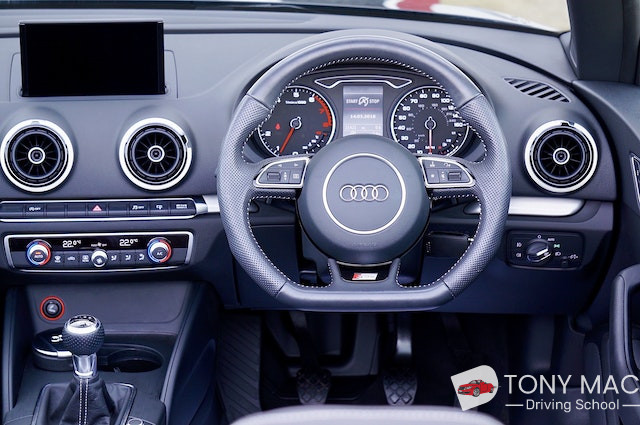14 Misconceptions Common To Beginner Driver
The Ultimate Guide for Beginner Drivers: Tips, Challenges, and Best Practices
Ending up being a skilled driver is a necessary ability that includes considerable obligations. For beginner chauffeurs, the journey from gaining their driver's license to ending up being a skilled road user can be both thrilling and difficult. This detailed guide will explore important pointers, typical difficulties, and best practices for newbie motorists.
Comprehending the Importance of Driving
Driving plays a crucial role in every day life. Driving Practice provides self-reliance and the ability to travel longer distances efficiently. However, it likewise requires attention, obligation, and an extensive understanding of traffic laws and lorry operation. For beginner chauffeurs, mastering these aspects can result in a much safer and more enjoyable driving experience.
Tabulation
- Preparing for the Road
- Necessary Skills Every Beginner Driver Should Know
- Typical Challenges Faced by Beginner Drivers
- Tips for Safe Driving
- Regularly Asked Questions (FAQs)
- * *
1. Getting ready for the Road
Preparation is key for any beginner driver. This involves understanding both theoretical and practical elements of driving.
1.1 Getting Your Driver's License
Before striking the road, individuals need to get a driver's license. The process generally includes:
- Completing a driver's education course
- Passing a written knowledge test
- Finishing a specified variety of hours of monitored driving
- Passing a road test
1.2 Familiarizing Yourself with the Vehicle
Comprehending the car you will be driving is vital. New drivers need to become acquainted with:
- The control panel design
- Standard controls (steering, pedals, signs)
- Safety functions (seat belts, airbags)
The place of necessary items like the spare tire and emergency package
- *
2. Necessary Skills Every Beginner Driver Should Know
As drivers, certain skills should be mastered to ensure safety and confidence on the road. Beginner drivers ought to focus on:
2.1 Basic Driving Techniques
- Beginning and Stopping: Learning the correct method to start the lorry and pertain to a complete stop.
- Steering Control: Understanding how to guide efficiently and make accurate turns.
- Parking Skills: Gaining confidence in parallel parking, angle parking, and parking in numerous circumstances.
2.2 Defensive Driving
- Awareness of Surroundings: Constantly scanning the environment for potential dangers.
- Keeping Distance: Keeping safe ranges from other automobiles to enable stopping time.
- Forecasting Others' Actions: Anticipating the habits of other drivers and pedestrians.
2.3 Navigational Skills
- Reading Maps and GPS: Being able to browse utilizing conventional maps and modern technology.
Comprehending Traffic Signs: Familiarity with road indications, signals, and markings to ensure compliance with traffic laws.
- *
Capability
Description
Basic Driving Techniques
Starting, stopping, steering, and parking
Defensive Driving
Awareness, preserving distance, forecasting actions
Navigational Skills
Using maps and GPS, comprehending traffic indications
- * *
3. Typical Challenges Faced by Beginner Drivers
Even with preparation and practice, beginner chauffeurs frequently deal with several obstacles that can prevent their knowing procedure.
3.1 Overcoming Fear and Anxiety
Starting to drive can be frustrating. Numerous brand-new chauffeurs experience stress and anxiety or worry, especially in high-traffic situations.
3.2 Learning Road Rules
With lots of rules to keep in mind, it can be hard for novices to monitor everything, specifically when under pressure.
3.3 Navigating Diverse Driving Conditions
As novices gain experience, they will require to learn how to manage different weather (rain, snow, fog) and road types.
- * *
4. Tips for Safe Driving
For newbie chauffeurs, embracing safe driving routines is important. Here are some best practices:
Avoid Distractions:
- Do not use your phone or other gadgets while driving.
- Limitation in-car conversations that may take your focus far from the road.
Adhere to Speed Limits:
- Always follow posted speed limitations.
- Change speed according to road and weather.
Use Turn Signals:
- Always signal your intent to turn or alter lanes.
- This informs other drivers and promotes much safer driving conditions.
Stay Calm and Patient:
- Keep your feelings in check to avoid aggressive driving.
- If you slip up, stay calm and learn from it.
4.1 Important Safety Features to Utilize
- Anti-lock Braking Systems (ABS)
- Traction Control
Crumple Zones and Airbags
- *
5. Often Asked Questions (FAQs)
Q1: How long does it take to end up being a proficient driver?A1: The timeline varies, but with consistent practice and experience, many learners end up being sufficiently skilled within 6 to 12 months. Q2: What must I do if I am involved in an accident?A2:
**Always ensure safety first, call emergency situation services if required, document the scene, and exchange information with the other party. Alert your insurer quickly. Q3: Can I take driving lessons if I have my learner's permit?A3: Yes, it is highly recommended to take structured driving lessons with a qualified instructor while holding a learner's permit. Q4: What are the benefits of defensive driving courses?A4: Defensive driving courses improve safety awareness, decrease accident danger, and may offer discounts
on insurance premiums. Q5: What ought to I do if I feel distressed while driving?A5: Practice driving in low-stress environments, consider taking driving lessons, and talk with someone who can supply assistance or
guidance on how to handle stress and anxiety. Driving is an important skill
that boosts individual mobility and self-reliance. For beginner drivers, getting understanding, honing vital skills, and getting rid of difficulties are crucial steps
- * *
in their journey towards becoming confident and safe motorists. By following this guide and welcoming a favorable knowing attitude, newbie drivers can pave the method for a successful driving future.  **
**